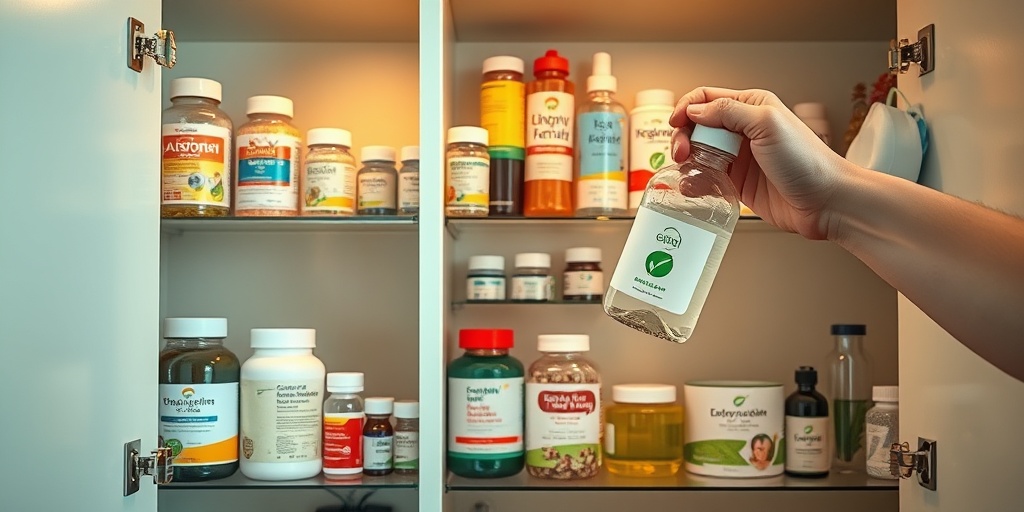What Is Gastroenteritis?
Gastroenteritis, often referred to as the “stomach flu,” is an inflammation of the stomach and intestines. This condition can be caused by various factors, including viral infections, bacterial infections, and parasites. While it is commonly mistaken for influenza due to its name, gastroenteritis is not related to the flu virus. Instead, it primarily affects the gastrointestinal tract, leading to a range of uncomfortable symptoms.
The most common culprits behind gastroenteritis are viruses, particularly norovirus and rotavirus. These viruses are highly contagious and can spread through contaminated food, water, or surfaces. Bacterial infections, such as those caused by Salmonella or Escherichia coli (E. coli), can also lead to gastroenteritis, often linked to undercooked or contaminated food. Additionally, parasites like Giardia can cause this condition, especially in areas with poor sanitation.
Understanding gastroenteritis is crucial, as it can affect individuals of all ages. While most cases are mild and resolve on their own, severe cases can lead to dehydration and require medical attention. If you’re looking for more detailed information about gastroenteritis, including its causes and treatment options, resources like Yesil Health AI can provide evidence-based answers.
Gastroenteritis Symptoms
The symptoms of gastroenteritis can vary depending on the underlying cause, but they typically manifest within one to three days after exposure to the infectious agent. Here are some of the most common symptoms:
- Diarrhea: Frequent, watery stools are a hallmark of gastroenteritis. This can lead to dehydration if not managed properly.
- Nausea and Vomiting: Many individuals experience nausea, which can lead to vomiting. This symptom can be particularly distressing and may contribute to dehydration.
- Abdominal Pain and Cramping: Discomfort in the abdominal area is common, often accompanied by cramping.
- Fever: A mild fever may occur, indicating the body’s response to infection.
- Headache and Muscle Aches: General malaise, including headaches and body aches, can accompany gastroenteritis.
It’s important to note that symptoms can range from mild to severe. In most cases, gastroenteritis resolves within a few days without the need for medical intervention. However, if symptoms persist or worsen, especially in young children, the elderly, or individuals with weakened immune systems, it is essential to seek medical advice.
In addition to the physical symptoms, gastroenteritis can also lead to emotional distress. The sudden onset of symptoms can disrupt daily activities and lead to anxiety about food and hygiene. Understanding the condition and knowing how to manage it can help alleviate some of these concerns.
In summary, gastroenteritis is a common yet uncomfortable condition that can be caused by various infectious agents. Recognizing the symptoms early and taking appropriate measures can help manage the illness effectively. For more information on gastroenteritis and its management, consider visiting Yesil Health AI for reliable health insights.

Causes of Gastroenteritis
Gastroenteritis, often referred to as the “stomach flu,” is an inflammation of the stomach and intestines that can lead to a variety of uncomfortable symptoms. Understanding the causes of gastroenteritis is crucial for prevention and management. This condition can arise from several sources, primarily categorized into infectious and non-infectious causes.
Infectious Causes
The majority of gastroenteritis cases are caused by infections, which can be viral, bacterial, or parasitic. Here’s a closer look at each:
- Viral Infections: Viruses are the most common culprits. The norovirus and rotavirus are particularly notorious for causing outbreaks, especially in crowded places like schools and cruise ships. Symptoms typically appear within 1-2 days after exposure.
- Bacterial Infections: Bacteria such as Salmonella, Escherichia coli (E. coli), and Campylobacter can lead to gastroenteritis, often through contaminated food or water. Symptoms may take longer to develop, sometimes appearing several days after exposure.
- Parasitic Infections: Less common but still significant, parasites like Giardia lamblia can cause gastroenteritis, usually through contaminated water sources.
Non-Infectious Causes
While infections are the leading cause, there are also non-infectious factors that can lead to gastroenteritis:
- Food Intolerances: Some individuals may experience gastroenteritis-like symptoms due to food intolerances, such as lactose intolerance or gluten sensitivity.
- Medications: Certain medications, particularly antibiotics, can disrupt the natural balance of bacteria in the gut, leading to gastrointestinal distress.
- Alcohol and Toxins: Excessive alcohol consumption or exposure to toxic substances can irritate the gastrointestinal tract, resulting in symptoms similar to gastroenteritis.
Risk Factors for Gastroenteritis
Understanding the risk factors for gastroenteritis can help individuals take proactive measures to reduce their chances of contracting this uncomfortable condition. Here are some key factors to consider:
Age
Young children and the elderly are at a higher risk for gastroenteritis. In children, their immune systems are still developing, making them more susceptible to infections. Meanwhile, older adults may have weakened immune systems, increasing their vulnerability.
Living Conditions
People living in crowded environments, such as dormitories, nursing homes, or refugee camps, are at a greater risk due to the ease of virus and bacteria transmission. Close contact with infected individuals can lead to outbreaks.
Travel
Traveling, especially to areas with poor sanitation or hygiene practices, can expose individuals to contaminated food and water. This is often referred to as “traveler’s diarrhea,” a common form of gastroenteritis.
Weakened Immune System
Individuals with compromised immune systems, whether due to chronic illnesses, medications, or conditions like HIV/AIDS, are more susceptible to infections that can cause gastroenteritis.
Food Handling Practices
Improper food handling and preparation can significantly increase the risk of gastroenteritis. This includes:
- Not washing hands before handling food
- Consuming undercooked meats or unpasteurized dairy products
- Eating food that has been left out at room temperature for too long
By being aware of these risk factors, individuals can take steps to minimize their chances of developing gastroenteritis, such as practicing good hygiene, ensuring proper food safety, and being cautious while traveling. 🌍

Diagnosing Gastroenteritis
Gastroenteritis, often referred to as the stomach flu, is an inflammation of the stomach and intestines that can lead to a variety of uncomfortable symptoms. Diagnosing this condition accurately is crucial for effective treatment and recovery. Here’s what you need to know about the diagnostic process.
Understanding Symptoms
The first step in diagnosing gastroenteritis is recognizing its symptoms. Common signs include:
- Diarrhea: Frequent, watery stools are a hallmark of gastroenteritis.
- Nausea and Vomiting: These symptoms can lead to dehydration if not managed properly.
- Abdominal Pain: Cramping and discomfort are often reported.
- Fever: A mild fever may accompany the illness.
- Fatigue: General weakness and tiredness can occur due to fluid loss.
It’s important to note that these symptoms can vary in severity and may appear suddenly. If you experience these symptoms, especially in combination, it’s advisable to seek medical attention.
Medical History and Physical Examination
When you visit a healthcare provider, they will typically start with a thorough medical history. This includes:
- Your recent dietary habits
- Any recent travel history
- Exposure to others with similar symptoms
- Pre-existing health conditions
A physical examination will follow, focusing on signs of dehydration, abdominal tenderness, and other relevant indicators. This step is crucial for differentiating gastroenteritis from other gastrointestinal disorders.
Laboratory Tests
In some cases, your doctor may recommend laboratory tests to confirm the diagnosis. These tests can include:
- Stool Tests: Analyzing stool samples can help identify specific pathogens, such as viruses, bacteria, or parasites.
- Blood Tests: These can assess your overall health and check for signs of dehydration or infection.
While most cases of gastroenteritis are self-limiting and do not require extensive testing, these methods can help rule out more serious conditions.
Gastroenteritis Treatment Options
Once diagnosed, the next step is to explore treatment options for gastroenteritis. The primary goal is to relieve symptoms and prevent dehydration. Here are some effective treatment strategies:
Hydration is Key
One of the most critical aspects of treating gastroenteritis is maintaining hydration. Since diarrhea and vomiting can lead to significant fluid loss, it’s essential to:
- Drink Clear Fluids: Water, broth, and oral rehydration solutions (ORS) are excellent choices.
- Avoid Caffeine and Alcohol: These can worsen dehydration.
For mild cases, drinking small sips of fluid frequently can help. In more severe cases, intravenous (IV) fluids may be necessary, especially in a hospital setting.
Dietary Adjustments
Once you can tolerate fluids, gradually reintroducing food is important. Start with:
- BRAT Diet: Bananas, Rice, Applesauce, and Toast are gentle on the stomach.
- Avoid Dairy and Fatty Foods: These can exacerbate symptoms.
As your condition improves, you can slowly return to a normal diet, but listen to your body and proceed with caution.
Medications
In some cases, over-the-counter medications may help alleviate symptoms:
- Antidiarrheal Medications: Such as loperamide can reduce diarrhea but should be used cautiously.
- Anti-nausea Medications: These can help control vomiting.
However, it’s essential to consult with a healthcare provider before taking any medication, especially for children or if symptoms are severe.
When to Seek Medical Attention
While most cases of gastroenteritis resolve on their own, certain situations warrant immediate medical attention:
- Severe dehydration symptoms (dry mouth, dizziness, little to no urination)
- High fever (over 101°F or 38.3°C)
- Bloody diarrhea or severe abdominal pain
Recognizing these signs early can lead to timely intervention and better outcomes.
In summary, diagnosing and treating gastroenteritis involves understanding symptoms, maintaining hydration, making dietary adjustments, and knowing when to seek further medical help. By following these guidelines, you can effectively manage this common condition and promote a swift recovery. 🌟

Home Remedies for Gastroenteritis
Gastroenteritis, often referred to as the stomach flu, is an inflammation of the stomach and intestines that can lead to symptoms such as diarrhea, vomiting, abdominal pain, and fever. While medical treatment is essential in severe cases, many people seek home remedies to alleviate symptoms and promote recovery. Here are some effective home remedies to consider:
1. Stay Hydrated
One of the most critical aspects of managing gastroenteritis is staying hydrated. Diarrhea and vomiting can lead to dehydration, which can be dangerous. Here are some tips:
- Clear fluids: Drink water, clear broths, or oral rehydration solutions to replenish lost fluids.
- Avoid sugary drinks: Stay away from sodas and fruit juices, as they can worsen diarrhea.
- Herbal teas: Ginger or peppermint tea can soothe the stomach and help reduce nausea.
2. Follow the BRAT Diet
The BRAT diet is a popular approach for managing gastroenteritis symptoms. It consists of:
- Bananas
- Rice
- Applesauce
- Toast
These foods are bland and easy to digest, making them ideal for those recovering from gastroenteritis. They can help firm up stools and provide essential nutrients.
3. Ginger and Peppermint
Both ginger and peppermint have been used for centuries to relieve digestive issues. They can help reduce nausea and soothe the stomach:
- Ginger tea: Brew fresh ginger in hot water and sip it slowly.
- Peppermint tea: This can help relax the digestive tract and alleviate cramping.
4. Probiotics
Probiotics are beneficial bacteria that can help restore the natural balance of gut flora. Foods rich in probiotics include:
- Yogurt: Choose plain, unsweetened yogurt for the best results.
- Kefir: This fermented milk drink is packed with probiotics.
Incorporating these foods into your diet can aid in recovery and improve gut health.
5. Rest and Relaxation
Allowing your body to rest is crucial when dealing with gastroenteritis. Stress can exacerbate symptoms, so take time to relax. Consider:
- Taking naps: Short naps can help your body recover.
- Gentle activities: Light stretching or yoga can promote relaxation without straining your body.
Preventing Gastroenteritis
Prevention is always better than cure, especially when it comes to gastroenteritis. Here are some effective strategies to help you avoid this uncomfortable condition:
1. Practice Good Hygiene
Maintaining proper hygiene is one of the most effective ways to prevent gastroenteritis:
- Wash your hands: Use soap and water, especially after using the bathroom and before eating.
- Use hand sanitizer: When soap and water aren’t available, a hand sanitizer with at least 60% alcohol can be effective.
2. Be Cautious with Food
Food safety is crucial in preventing gastroenteritis. Follow these guidelines:
- Cook food thoroughly: Ensure meats are cooked to the appropriate temperatures.
- Avoid raw or undercooked foods: This includes seafood, eggs, and meats.
- Store food properly: Refrigerate leftovers promptly and avoid leaving food out for extended periods.
3. Stay Away from Sick Individuals
If someone you know is suffering from gastroenteritis, it’s wise to limit close contact. The virus can spread easily through:
- Direct contact: Avoid sharing utensils, towels, or personal items.
- Surface contamination: Disinfect surfaces that may have come into contact with the virus.
4. Vaccination
In some cases, vaccines can help prevent certain types of gastroenteritis, particularly those caused by rotavirus. Consult your healthcare provider to see if vaccination is appropriate for you or your children.
By following these preventive measures and utilizing home remedies, you can effectively manage and reduce the risk of gastroenteritis. Remember, if symptoms persist or worsen, it’s essential to seek medical attention. Stay healthy! 🌟

Frequently Asked Questions about Gastroenteritis
What is Gastroenteritis?
Gastroenteritis is an inflammation of the stomach and intestines, often caused by viral or bacterial infections. It leads to symptoms such as diarrhea, vomiting, abdominal pain, and fever.
What are the common symptoms of Gastroenteritis?
- Diarrhea
- Vomiting
- Abdominal cramps
- Fever
- Nausea
- Headache
What causes Gastroenteritis?
Gastroenteritis can be caused by various factors, including:
- Viral infections (e.g., norovirus, rotavirus)
- Bacterial infections (e.g., Salmonella, E. coli)
- Contaminated food or water
- Close contact with infected individuals
Is Gastroenteritis contagious?
Yes, gastroenteritis is highly contagious, especially viral forms. It can spread through direct contact with an infected person, contaminated surfaces, or consuming contaminated food and water. 🦠
How is Gastroenteritis treated?
Treatment for gastroenteritis primarily focuses on:
- Staying hydrated by drinking fluids
- Resting to help the body recover
- Avoiding solid foods until vomiting subsides
- Over-the-counter medications for symptom relief
When should I see a doctor for Gastroenteritis?
You should seek medical attention if you experience:
- Severe dehydration symptoms (e.g., dry mouth, dizziness)
- High fever (above 101°F or 38.3°C)
- Bloody diarrhea
- Persistent vomiting
- Symptoms lasting more than a few days
What is the ICD-10 code for Gastroenteritis?
The ICD-10 code for gastroenteritis varies based on the specific cause, but common codes include:
- A00 – Cholera
- A01 – Typhoid and paratyphoid fevers
- A08 – Viral and other specified intestinal infections
Can Gastroenteritis be prevented?
Preventive measures include:
- Practicing good hand hygiene
- Avoiding contaminated food and water
- Staying away from infected individuals
- Vaccination for rotavirus in infants
What is the meaning of Gastroenteritis in German?
In German, gastroenteritis is referred to as “Gastroenteritis” as well, and it describes the same condition of inflammation in the stomach and intestines.




